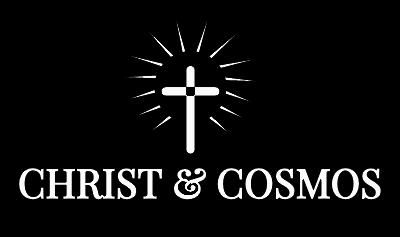CHRISTIANITY AND THE AGE OF THE WORLDVIEW
Today we constantly hear about worldviews. You will hear this word regularly in conservative Christianity – everyone from Dr. Albert Mohler to Dr. Timothy Keller refers to it in some way. Pastors and apologists talk regularly about having a “Christian (or Biblical) worldview.” Traditionalist and sectarian Catholics will refer to the “Catholic (or Medieval) worldview.” East Orthodox followers of Fr. Seraphim will refer to the “Patristic worldview” as well. I do not know if I would say that the notion is ubiquitous – but I would say that if you spend much time in these circles, you will run across the term rather quickly.
Though it does not use the word as much, the progressive world has its own version of worldviews. It speaks of perspectives, viewpoints, journeys, stories. These are not all the same sorts of things, of course, but it does point to a basic part of the progressive ethos: that there is a plurality of worldviews, etc., out there, and they all ought to be respected. They ought to respect one another, too.
References to worldviews – whether direct or indirect – are a constant occurrence in our day, and this is for good reason. For the modern age is, fundamentally, an age of worldviews. Or, maybe we should say, it is the age in which we can consider the fundament, the foundation, of all that is true and good to be relative to – or properly expressed in – a specific perspective about how things are in the world. For we moderns, something is true and of value only from within our worldview.
This all sounds strange and abstract. To an extent that simply comes with the territory. Talking about “worldviews” can be difficult because, for the most part, a worldview is something we presume whenever we think, and especially when we reflect. Whenever we are making an important decision in our lives – heck, whenever we run into something new and have to process it – we are always reflecting, thinking, evaluating according to what we think is true about the world. We think, that is, according to a framework of the world.
ASPECTS OF A WORLDVIEW: AN EXAMPLE FROM SOCIETY
A striking example might help make this clear. Ask yourself: what (or whom), do you think, is the most fundamental unit of society? If you’re like most people in the West, your automatic answer is likely that, without doubt, it is the individual. This seems so obvious – but it is true? It all depends on your worldview.
If, with the Enlightenment, your understanding of truth begins with the abstract, independent, inquiring individual and his experiences – well, in that case, you have a modern, Western worldview, and your answer makes sense accordingly. But most traditional societies would not agree with this. They would see the family unit, however defined, as fundamental. For them, the world does not begin with me.
Rather, I am always already thrown into the world, and embedded within networks of relationships that make me who I am. I am not an individual before I am a daughter. I am not an individual before I am a father. Nor am I an individual prior to the land, the village, the kingdom of which I am a part – rather, I arise as a unique part of these living, concrete groups. I retain a sense of self, true, and I remain distinct from others. But I do not exist meaningfully apart from them; without place, society, family, tradition, I am but a shadow of my proper self.[1]
Now this sort of claim does not make up a “worldview” in itself. A worldview is a picture of reality as a whole; and one’s position concerning the fundamental unit of society is not a whole picture of reality. It is, however, an important piece of such a view. It is determined by one’s presuppositions – but it also determines a significant portion of one’s beliefs. It is one of many essential basic propositions that make up a person’s worldview. Other questions include: Is there a God? Does God interact with humanity? Is there an infallible source of truth? Are there real, moral truths which we must follow? What is our purpose? Do we have one? What is the overall narrative of the universe and of ourselves?
OUR AWARENESS OF THESE QUESTIONS TODAY
Most of these questions are deeply philosophical. They are what today we call “existential” questions. They are questions about existence, about what it means to be. They are, in fact, religious in nature.
Plenty of people are aware of these questions. Some have only a dim awareness; others lay awake at night haunted by these questions, almost consumed by a kind of dread. (The contrast in our different reactions to these questions is very curious.) But everyone is aware of them in some sense.
The fact that we are so aware of these questions is a testament to our awareness of other, different perspectives on things. We know that the East does not view things in the same way as the West. We know that different faiths, with different codes of beliefs and morals, claim millions of adherents. We are probably more aware than ever before that, in fact, our “worldview” is relative.
We should not give ourselves too much credit for being so Enlightened here. Nor should we be too quick to treat a globalized world and religious pluralism as a fundamentally new situation. There have been plenty of ages in which contact with foreign civilizations rocked and challenged people’s views of the world. Many of the greatest intellectual accomplishments in history have come from these times. To give just one example, St. Thomas Aquinas wrote at a time when the rediscovery of the ancient Greeks (especially Aristotle), and the challenge of Muslim thought (especially Avicenna) – both of which came through contact with the Middle East – necessitated a great re-articulation of the Christian tradition. And this is not the only time such a thing has happened.
So I would say our difference from previous ages here is one of degree rather than of kind. It is not that we are now suddenly aware of other cultures, faiths and worldviews; instead, it is that we are more aware – and that more of us are aware. But even so, an increased awareness makes a big difference. And so today we can see more clearly – though not for the first time, that we do, in fact, hold to a particular perspective, which must stand in juxtaposition to others – something we might call a worldview.
But if this is so, then how should we decide on a worldview? Is any one worldview more valid than another? In an age of multiple worldviews ready-made for our adherence, this seems a necessary question for us to ask. And there seem to be two possible responses to the question: the response that all worldviews are effectively relative, or the response of choosing one worldview over the others.
For the Christian church – especially for conservative churches – this question of differing worldviews has become central. The Christian must choose one worldview, they feel, and this must be the Biblical one. The vast majority of highly conservative American Christians, Protestant, Catholic and Orthodox, all seem to agree on this basic point (even if the latter two would add “the view of tradition” to this equation). The only real debate is how this should be approached: should one take a fideist approach (demanding a basically irrational – and usually emotional/experiential – choice on the individual’s part); or should one take a presuppositional approach, giving rational arguments for the superior coherence of the Protestant Christian/Catholic/Orthodox worldview?
Progressive churches, in turn, will usually take a more relative approach here – though not an absolutely relativist one. Often they will insist on seeing different religious traditions as equally true, or at least broadly valid, ways of pursuing God. In turn, specific dogmatic truth is made relative to me or my tradition; but individual traditions are not ultimately relative. Rather, in the final analysis, it is expected that all of these different traditions will be seen to express a broader, higher Truth, of which we tribal humans receive only a foretaste here. So truth is not absolutely relative for the progressive Christian; rather, it is eschatologically open.
In what follows, I want to look at the Christian understanding of the “Christian worldview.” I want to show what this means, and then argue against it. To do this, I’ll be looking at the work of presuppositional apologist Francis Schaeffer, the early Reformation (especially Martin Luther), and Martin Heidegger’s wonderful essay “The Age of the World Picture” – a piece that shows relativism and purported “true worldviews” to be flip sides of the same modern coin.
WHAT IS A WORLDVIEW?
According to Aerts, Apostel, et. al., “a worldview is a system of co-ordinates or a frame of reference in which everything presented to us by our diverse experiences can be placed. It is a symbolic system of representation that allows us to integrate everything we know about the world and ourselves into a global picture, one that illuminates reality as it is presented to us within a certain culture” (Diederik Aerts, Leo Apostel, Bart de Moor, Staf Hellemans, Edel Maex, Hubert Van Belle, Jan Van der Veken, World Views: From Fragmentation to Integration, 9, https://www.vub.be/CLEA/pub/books/worldviews.pdf).
In other words, a worldview is a way that we represent the world to ourselves. It is the way we represent and understand our experiences, and it is the blueprint or outline through which we come to understand the world.
A worldview, then, is something like the frame of a house: it provides the basic structure according to which the rest of the house must be built. We may add flooring, walls, electrical, plumbing – and more personal items like paint, furniture, decorations, etc. – but all these things must fit with the frame of the house. We hear about the frame’s importance all the time in home makeover shows: “You might want to knock down that wall and open up your kitchen,” the hosts tell their clients, “but if that would mean tearing down a fundamental support beam of the home, then that’s a no-go. If the beam needs to be there, then at best we can only do part of what you’re asking.” Home remodeling must ultimately work with the basic structure of the house.
Our experiences, in this analogy, are like the aforementioned “personal items” of a home; for they, like our experiences, are ultimately accidental to our general framework. The structure of a house does not necessitate a particular sort of paint job; and the structure of the world I experience does not mean I must do something specific – see this film rather than that one, for instance. And yet, when I paint a house, the fact is I am going to paint walls built in alignment with the basic frame of my home; and likewise, when I have an experience, I am going to understand it according to my basic worldview. Just as decorations, etc. end up conforming to the house’s frame, so experience conforms to the worldview through which it is processed – though neither the paint job nor the experience determines its frame.
Thus a worldview is that picture, that “global image of the world” which we construct, that allows us to make sense of our experiences (Aerts et. al., 8). Without such an image, our perceptions would remain an incoherent cacophony for us; we would be unable to process virtually anything we saw.
Worldviews, then, are how we structure, organize, make sense of our experience. They allow us to perceive and think. And, moreover, according to “worldview” proponents, they are something that every single person has, whether they admit it or not. The real question is: what sort of worldview do they have?
And in particular, for the Christian, the question is this: do we have a Christian, or Biblical, worldview? Next to the all-important question – whether I accept Jesus Christ as my personal Savior – this is, for many Christians, the most important question of our lives.
But what makes up the Biblical worldview? And how is it juxtaposed against other worldviews?
Conservative Christians have tended to speak primarily about two different worldviews: the worldview held by modern Western culture at large, and the Biblical worldview.
This does not mean that they think the secularism and Christianity are the only two available worldviews. Rather, it means that they see the secular worldview as predominant, and are contrasting their own worldview (the true worldview) with it.
FRANCIS SCHAEFFER: THE GOD WHO IS THERE – IN THE WORLD(VIEW)
Many believe that understanding this divergence between the modern and the Christian worldview became necessary in the twentieth century – especially for evangelism and apologetics. As one of the great popular proponents of worldview-centered, presuppositional apologetics, Francis Schaeffer, put it in his book The God Who Is There:
Before these dates [around 1935 in America, and 1890 in Europe] everyone would have been working on much the same presuppositions, which in practice seemed to accord with the Christian’s own presuppositions. This was true both in the area of epistemology and methodology… The use of classical apologetics before this shift took place was effective only because non-Christians were functioning, on the surface, on the same presuppositions, even if they had an inadequate base for them. In classical apologetics though, presuppositions were rarely analyzed, discussed or taken into account. (Schaeffer, The God Who Is There, 14-15).
Schaeffer sees this shift he references as occurring in five realms (what he calls “the steps to despair”): philosophy, art, music, the general culture and theology. The divergence, it seems, basically comes from this: the movement from a conception based upon presupposed Christian foundations to an entirely relativistic conception – with dialectical methodology at the heart of this new view’s thinking.
This is a pernicious and dangerous development which apologists must be aware of, according to Schaeffer. Whereas once, when speaking with nonbelievers, one could presuppose a basically Christian understanding of the universe, this is no longer the case. The basic rules of logic are no longer shared between the believer and the unbeliever, as they were even for Cornelius Van Til, the founder of presuppositional apologetics. The secularist is thoroughly dialectical: they do not even accept the law of non-contradiction.
Yet this law, for Schaeffer, is basic to the Christian worldview:
What were these presuppositions [of the Christian worldview]? The basic one was that there really are such things as absolutes. They accepted the possibility of an absolute area of Being (or knowledge), and in the area of morals. Therefore, because they accepted the possibility of absolutes, though men might disagree as to what these were, nevertheless they could reason together on the classical basis of antithesis… This little formula, ‘If you have A it is not non-A’, is the first move in classical logic. (Schaeffer, The God Who Is There, 14.)
In short, the classical Christian worldview is one of absolutes, and these absolutes force us into what Schaeffer calls an “antithesis.” Christianity, for him, is the religion of antitheses – it is the religion of objective truth, based on the revealed teachings of God. Such a religion must produce antitheses.
Dialectical methodology does not see things in terms of antitheses – or rather, it does not leave things as antitheses. In fact, there are many different forms of dialectic, and Schaeffer does not properly distinguish between them. But what he has in mind is an oversimplified version of the Hegelian dialectic, in which two opposing and antithetical ideas come, through the movements of logic (as in The Science of Logic) or through the movements of world history (as in the Phenomenology of Spirit), to a new and higher phase wherein they are synthesized or “sublated.”
Again, for Schaeffer the great offense of this form of thinking is that it in some sense denies the law of non-contradiction – a sacrosanct rule of Christian thought The whole point of dialectic methodology is to overcome contradiction rather than to obey its rules, and choose one answer over another. But it is also a problem because it is a failed project: while Hegel thought that reason could discern this dialectical process as it worked out its great resolutions through history, this ultimately did not happen. There were too many places where the dialectic did not work. One could not come to a proper, synthesized perspective through reason.
Instead, one could only watch the various antitheses of reason move into an irreconcilable tension with each other. And when one saw this – when one saw no single position actually gaining the argumentative victory over the other – then one could do nothing but either despair, or leap. As Schaeffer understands him, this was the conclusion of Kierkegaard. For Schaeffer’s Kierkegaard, there is an absolute despair over reason and its capability; dialectical method can only show us its inability to arrive at clear answers. It can only show us that, ultimately, we can neither reconcile antitheses nor choose between them. Instead, we must take a trusting leap – a “leap of faith,” which moves forward in the face of contradiction, embracing it.
This, at least, is Schaeffer’s understanding of Kierkegaard’s leap. By this understanding, it seems that most any leap will do, so long as it is in some sense “authentic.” The whole point is to take the leap, and be authentic to oneself. As the existentialists after Kierkegaard tell us, one must create one’s own meaning – and to do so one must take an initial blind step into contradiction.
So, as Schaeffer sees it, modern thought has come to this conclusion: There are multiple, contradictory viewpoints, each of which is antithetical to the other, and irresolvable. These points of view can never come together, can never reach a higher synthesis (as in Hegel), but rather must remain in perpetual tension (as in Kierkegaard). And so, in the face of this, in order to live, I must make a fundamentally irrational choice: I must decide for a life which seems true or authentic to me, even if it has no solid, rational basis. There can be no reason for this choice; it is entirely relative to me. And yet I must make the choice for myself – and commit to it.
This is a misinterpretation of Kierkegaard, to be sure, and I am not the first person to note this. Schaeffer misses that Kierkegaard’s is an existential dialectic; he does not see that the impossibility of synthesis is in fact the breakdown of human reason in its attempts to deal with the problems of its own life. The human predicament – of anxiety, despair, death – is inescapable for sinful humanity, and fallen human reason must of necessity tie itself into knots when it attempts to overcome its own problems. Kierkegaard is trying to show this. The point of his plunge into despair is to make us despair of reason itself – Schaeffer gets this part right – and with it, of all human attempts at salvation. Such despair breaks us down, and brings us to the point where grace can finally enter in – from outside ourselves! – and enable us to place our trust in the paradox of the God-man. This attack upon reason and its attempts at self-justification are far from antithetical to Christianity; they are, in fact, entirely in keeping with the early (especially the German) Reformation.
Come back next week for the second part of “Christianity and the Age of the Worldview!” We’ll talk about Medieval Catholicism, the early Reformation, Martin Heidegger, and more.
[1] This traditional order is not to be mistaken with that other, strange beast of modernity: the collectivist state. This order, which treats the state as primary, and sees the individual and her labor as primarily a means to its end – this order, while modern, is so in a different way. It takes the worldviews of modern science – that of the world as mechanism, or as organism – and applies this picture to society as a whole. This view of society does not start with the individual, as does Western democracy; but it is nonetheless a thoroughly modern view of the world and society, to be sure.
DAN TATE is a writer and blogger at Christ & Cosmos. A former atheist, he’s been surprised and amazed by the God of all things, and he’s passionate about sharing the gospel in ways that respond to contemporary concerns about theology, philosophy, spiritual practice, science, art, and more. A lifelong writer hailing from Upstate New York, he has a B.A. from Allegheny College, an M.A. from Syracuse University, and an M. Div. from Princeton Theological Seminary.






